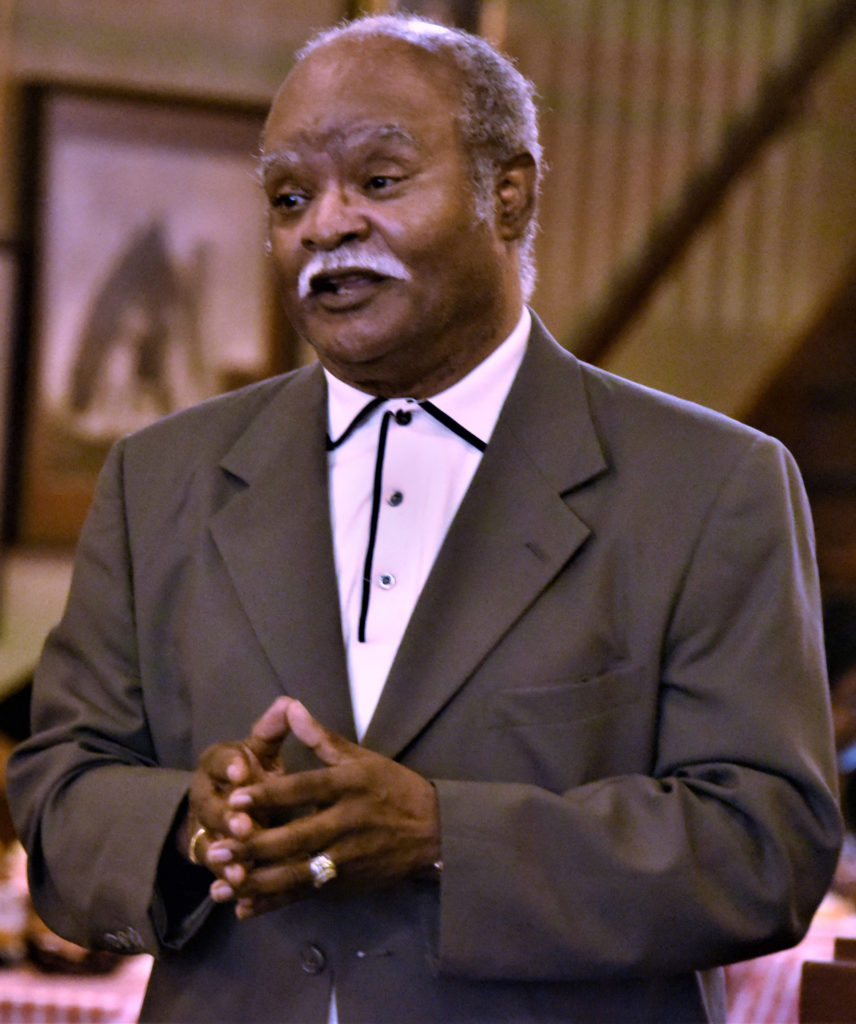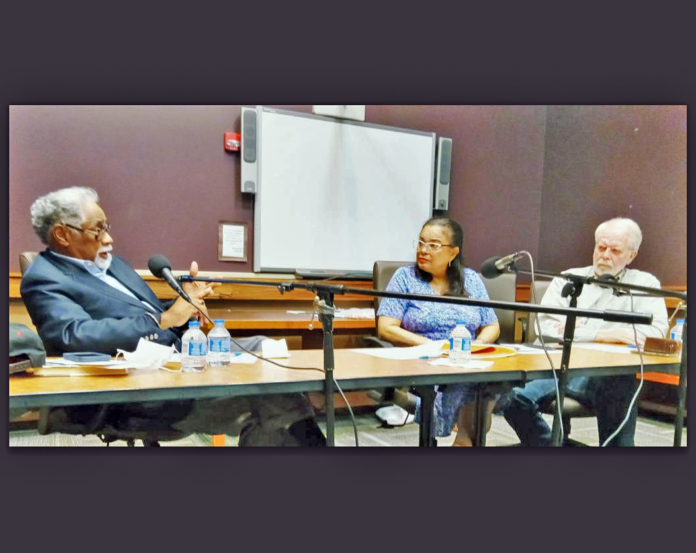“Wondering what exactly is happening with MLGW’s decision on the future of our power supply?”
That question was part of the pitch for the public forum hosted by the Southern Alliance for Clean Energy (SACE) Thursday night (Nov. 3).
The sense of urgency evident at the forum drew power from a Nov. 16 scheduled vote by the Memphis Light, Gas and Water Board of Directors. At issue is whether to keep the Tennessee Valley Authority as MLGW’s electric energy supplier.
For the bulk of the community activists and concerned citizens attending the forum, approving a new, long-term contract with TVA is a nonsense move they argue is not in the best interest of ratepayers.
“We need to say to the MLGW board, ‘We don’t want this,’” said the Rev. Dr. L. LaSimba Gray Jr., a forum panelist and chairman of the Memphis Memorial Committee, which organized the successful effort to erect a Downtown statue of Ida B. Wells.
“The city council would have the final vote … but to approve a 20-year contract without knowing the other options is foolishness.”
Gray said ordinary citizens need to act after hearing what energy advocates have explained about a proposed TVA contract that opponents maintain would eliminate cleaner, more cost-effective options.
J.T. Young, the now former head of the city-owned utility, had recommended that the utility stay with the federally-owned TVA. On Tuesday, the City Council confirmed Doug McGowen, who had been the city’s chief operating officer, as the new president and CEO of MLGW.
McGowen this week publicly said it would be inappropriate for him to take a position before talking to staff and board directors.
TVA officials maintain that becoming a long-term partner with TVA means an immediate reduction in the wholesale rate TVA charges to MLGW. They put the estimated savings at $22.5 million annually to MLGW and its customers.
Of the 153 local power companies that TVA serves, 147 have already selected the long-term agreement – including several that have completed power-supply studies – TVA officials note.

Herman Morris, former MLGW president and Friends of the Earth senior consultant, joined Thursday’s forum virtually as a panelist. He said the recommendation by MLGW consultant GDS to the board “that we should sign a long-term contract with a longer-term provision for termination is a bad deal. …
“It is, in fact, a worse deal than we have now. Our contract now says we have to wait five years to terminate the contract. This new contract says we have to wait … two decades before terminating the contract. … Keep that in mind.”
Through its communications office, TVA counters that utility decisions are long-term decisions and asserts that “partnership benefits far outweigh the downside of a 20-year contract.”

Pearl Walker, the civic engagement consultant for SACE, said the GDS presentation last summer “was very unbalanced. They talked about the benefits of staying with TVA, with none of the shortcomings.”
Maggie Shobar, SACE research director, also joined the panel virtually, blasting MLGW for what she viewed as a lack of transparency when TVA was put forth as the best option.
“When GDS recommended that MLGW stay with TVA, that’s when the transparency stopped,” Shobar said. “How did they come to this conclusion? We were asking because it just doesn’t make sense to us.”
Dennis Lynch, a Sierra Club member, said a new contract with TVA is essentially a never-ending contract.
“It locks us in with a ball and chain,” said Lynch.
“Over the past 10 years, the cost of solar energy has been reduced by 90 percent. The cost of wind energy has been reduced 70 percent over that same period. Technology is constantly improving, and a new, never-ending TVA contract shuts us off from these other great options.”
Morris referenced a study from 2000 when he was MLGW chief. He said it showed that MLGW customers were paying twice as much for their electricity with TVA, adding that another study “a couple of years ago” reflected the same findings.
“Industry experts have a chorus of voices saying the same thing,” said Morris. “When 30 percent of the Shelby County population lives below the poverty line, we know that signing this deal is a horrible decision.…
“There are clean, green, more economic sources of electricity. We need to pull the plug on TVA …we want better lives for our children.”
Memphis City Councilwoman Cheyenne Johnson, a forum panelist, said having utilities is a “basic need,” and costs should not be prohibitive.
“My first concern is as a citizen,” said Johnson. “And then secondly, I came to learn more so I can share more with my constituents. Having utilities is a basic need, just like sanitation and education.
“Utilities should not come at a cost that the average person cannot pay. We want to make sure every person can afford them.”
Thursday’s forum came one day after community activists spoke at a Wednesday MLGW board meeting, asking that the recommended contract with TVA be voted down.
“…I’m going to call my family, and I’m going to call … city council members to be at the meeting on Nov. 16,” said Gray.
“They need to hear us. The sanitation workers did it some years ago. The issue is economic justice, and we want to do it. I’m in.”
Shouts of “I’m in” and applause signaled the meeting’s close.


